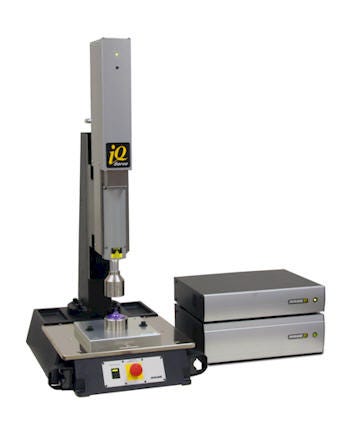A study done at Value Plastics, a molder of precision molded couplers for medical applications, shows that a servo welder produces hermetic welds with a standard deviation of 0.4% compared to 2.9% when using a pneumatic welder.Those results were reported last month at ANTEC in Cincinnati, OH by three officials at Dukane Corp., which has been testing potential benefits of its recently developed servo-driven ultrasonic welder.
May 6, 2013
A study done at Value Plastics, a molder of precision molded couplers for medical applications, shows that a servo welder produces hermetic welds with a standard deviation of 0.4% compared to 2.9% when using a pneumatic welder.
Those results were reported last month at ANTEC in Cincinnati, OH by three officials at Dukane Corp., which has been testing potential benefits of its recently developed servo-driven ultrasonic welder.
"These benefits include increased precision and repeatability, increased weld strength, the ability to precisely
|
define velocity control, reduced residual stress in parts, and almost complete control of the process," the three authors reported. "Our most recent experiments have shown that the optimal weld velocity can be calculated and that residual stresses can be further minimized through careful hold phase control."
The authors of the Dukane ANTEC paper are Miranda Marcus, applications engineer; Satish Anantharaman of the Technology Demonstration Center in Tamil Nadu, India; and Bob Aldaz, a senior project engineer.
Dukane developed the iQ series Servo-Driven Ultrasonic Welder with Melt-Match technology in response to a growing call, particularly in the medical market, for more controlled and consistent ultrasonic welding processes as part designs become more complex and requirements escalate. There is also a need for strong, dimensionally consistent parts with good cosmetics.
Weld data can be exported to Excel or Minitab for process optimization analysis.
Experiments at Ohio State University have shown a standard deviation of weld strength of 5.1% when using Dukane's servo-driven ultrasonic welder, compared to 9.4% when using a pneumatic welder.
About the Author(s)
You May Also Like



